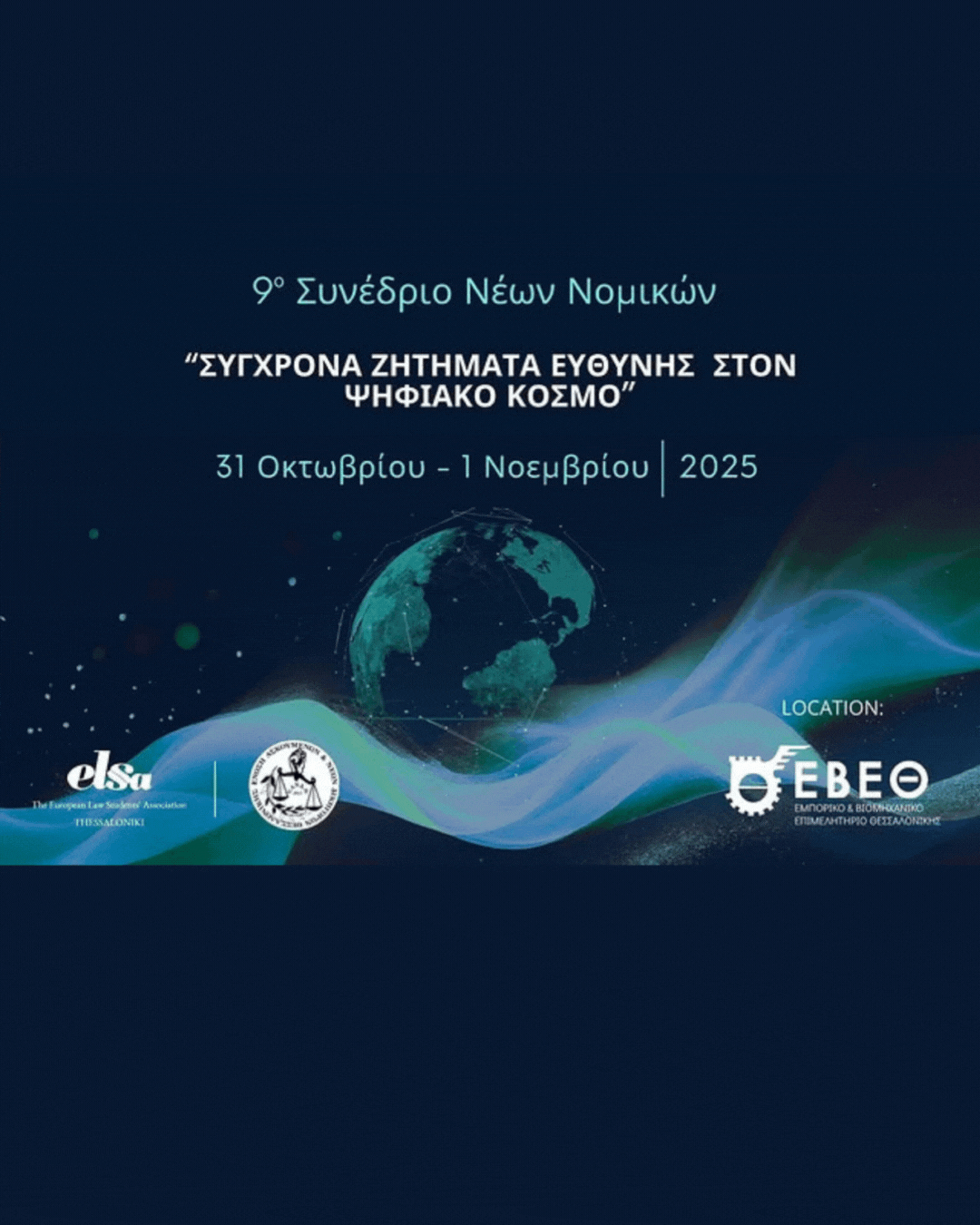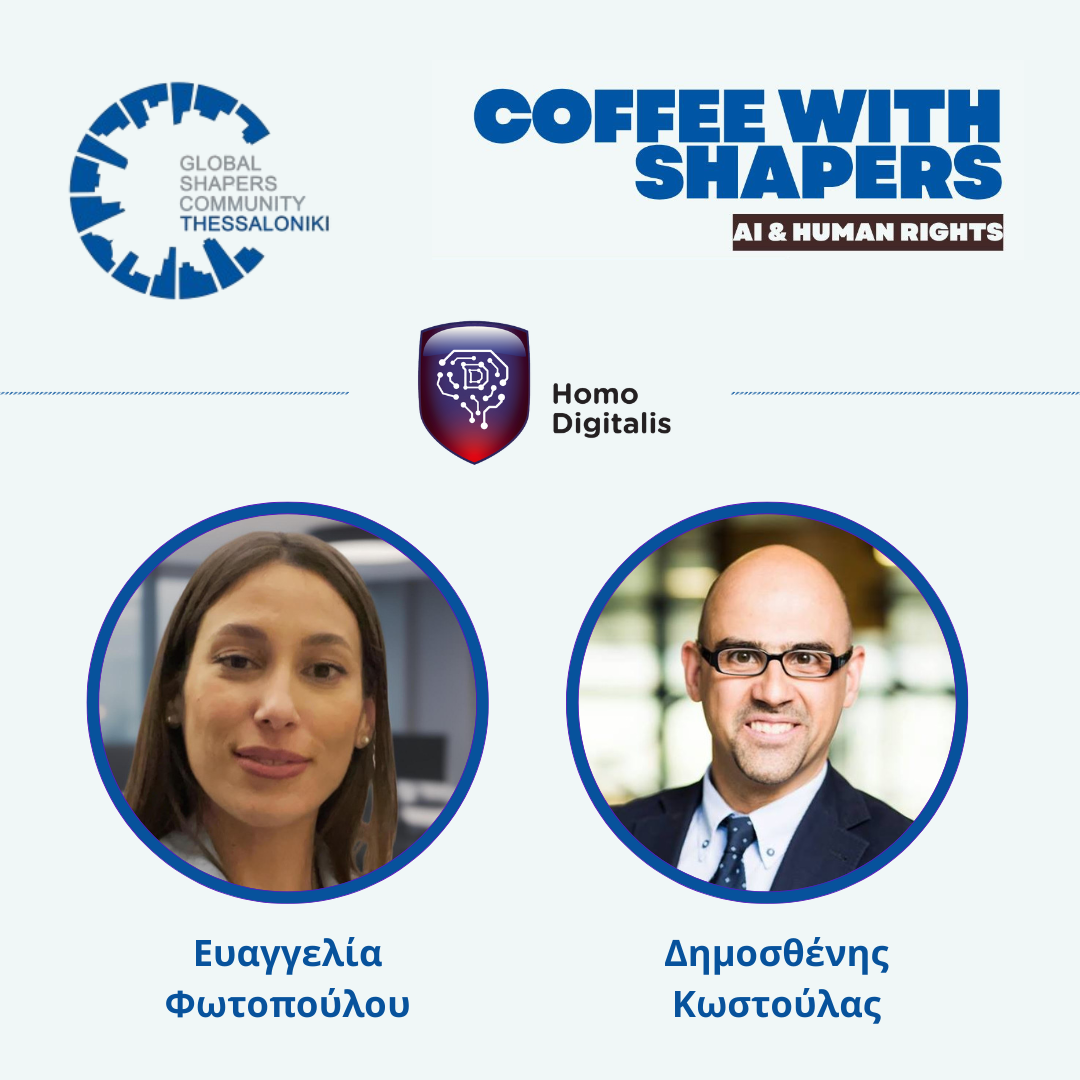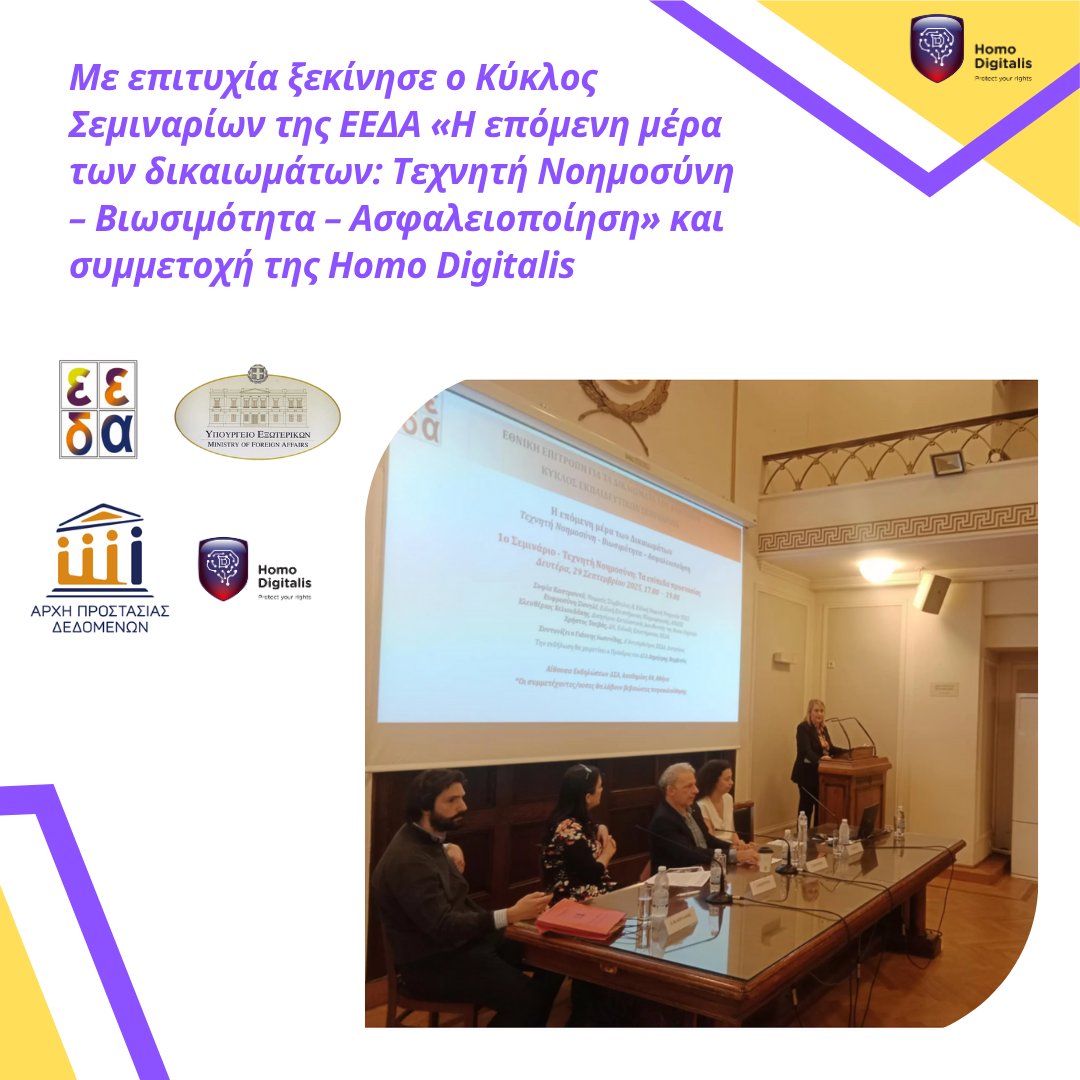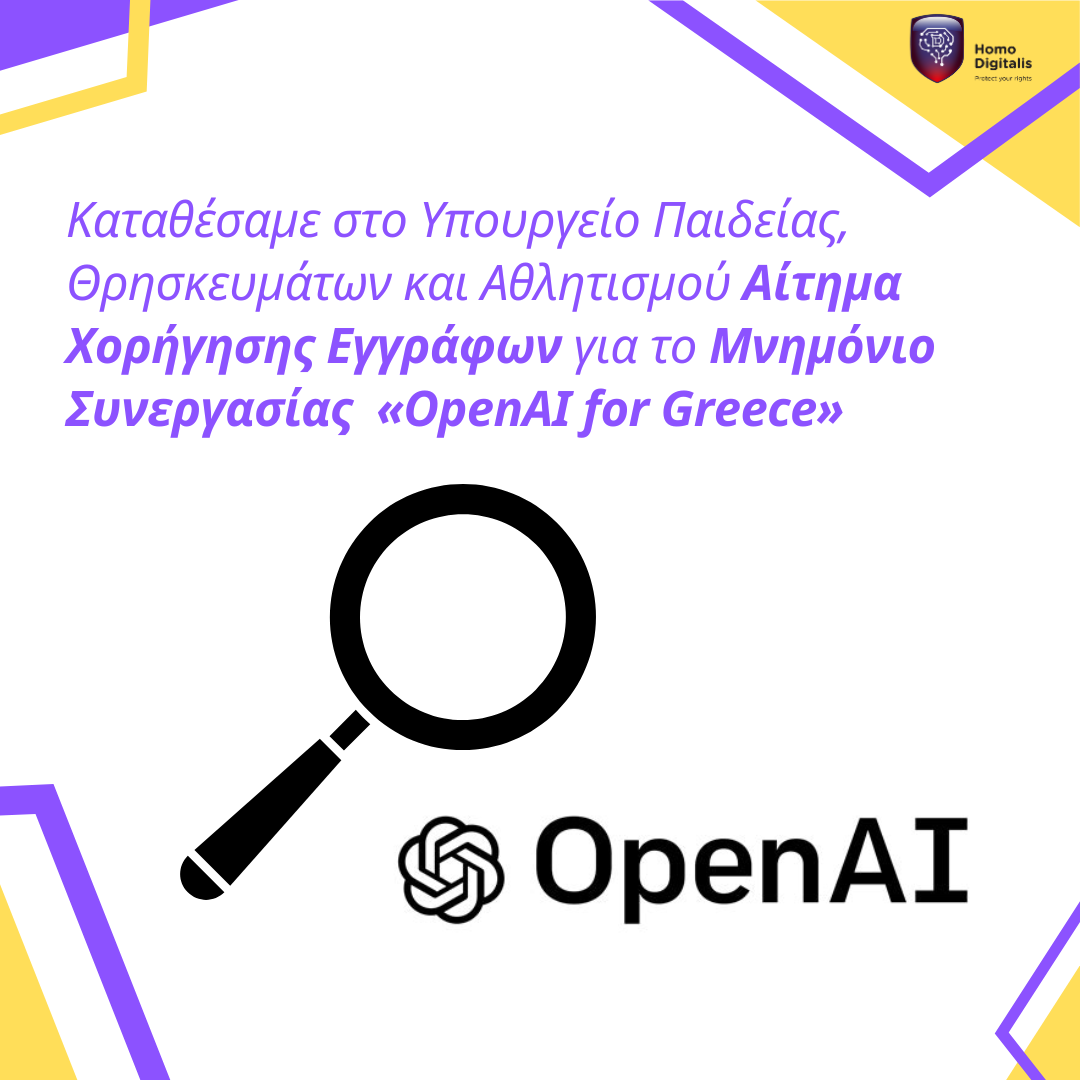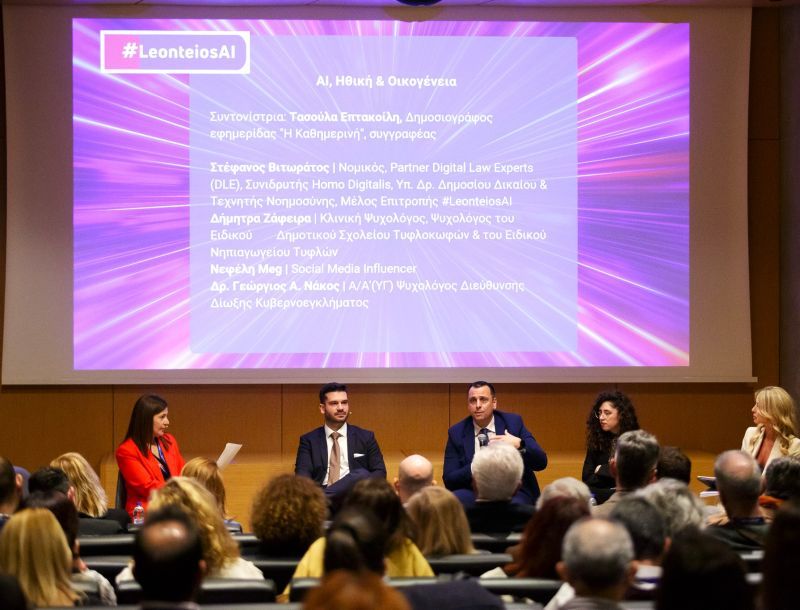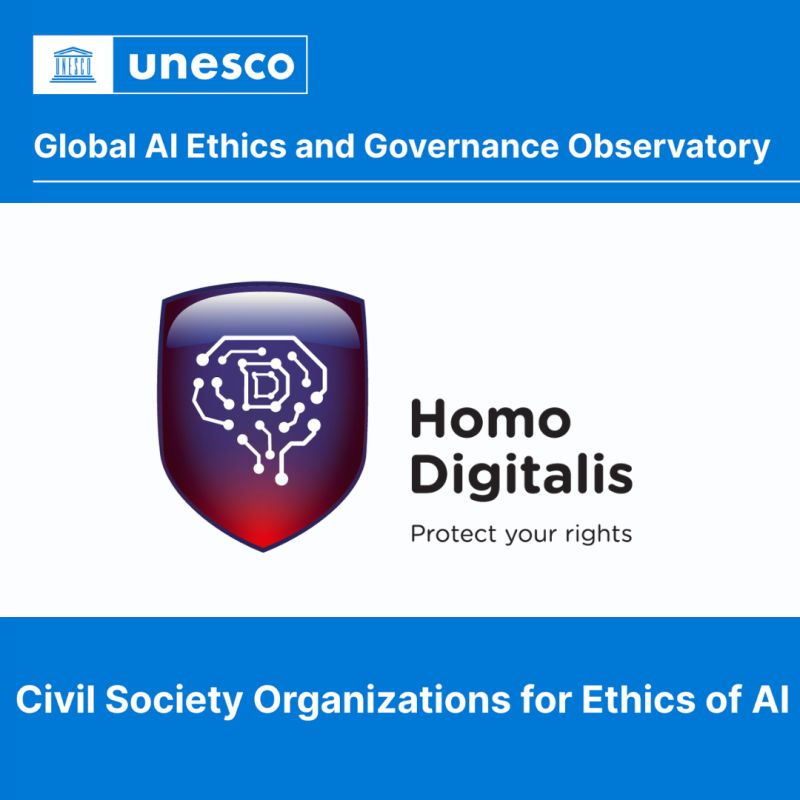Speech by Homo Digitalis at the 9th Conference of Young Lawyers in Thessaloniki
ELSA Thessaloniki and the Association of Trainee and Young Lawyers of Thessaloniki (EANDiTh) are organizing the 9th Conference of Young Lawyers today and tomorrow at the Thessaloniki Chamber of Commerce and Industry.
It is a great honor for Homo Digitalis to participate in this event, and we sincerely thank the organizers for their kind invitation.
More specifically, tomorrow, November 1, from 10:45 to 12:15, during the first panel of the day entitled “Contemporary Issues of Liability in the Digital World,” our member Melina Skondra will speak.
She is a Lawyer admitted to the Supreme Court, DPO, CIPP/E, and holds an MSc in Law & Informatics (University of Macedonia), with unique specialization in relevant fields.
The title of her presentation is “GDPR & Compensation.”
The line-up of the other speakers includes:
Spiros Tassis, POTAMITISVEKRIS (TMT, Data & IP), Chairman of the Hellenic Data Protection and Privacy Association, and Member of the Board of the European Federation of Data Protection Officers (EFDPO)
Athanasios-Antonios Leontaris, Lawyer / Legal Counsel and Industry Fellow at the Institute for the Future, University of Nicosia
Pavlos Salonikidis, Lawyer admitted to the Courts of Appeal, holder of an LL.M. in International and European Legal Studies, Faculty of Law, Aristotle University of Thessaloniki
We look forward to seeing you there!
Speech by Homo Digitalis at an event of the Global Shapers Thessaloniki Hub on AI
It is a great pleasure for Homo Digitalis to participate in the Global Shapers Thessaloniki Hub event series, “Coffee with Shapers”!
The theme of the event is AI & Human Rights and it will take place on Saturday, November 1, 2025, from 16:30 to 20:00, at OKTHESS.
Homo Digitalis will be represented by our members Evi Fotopoulou and Dimos Kostoulas.
Admission is free, and the registration form is available here.
We would like to warmly thank the organizing team and Emily Fisher for the kind invitation!
Homo Digitalis speaks at the 1st Seminar of the GNCHR Educational Seminar Series on “Artificial Intelligence: Levels of Protection”
With great success and active public participation, on Monday, September 29, 2025, the opening event of the Educational Seminar Series of the Greek National Commission for Human Rights (GNCHR) took place in the event hall of the Athens Bar Association (DSA), under the theme:
“The Next Day of Rights: Artificial Intelligence – Sustainability – Securitization.”
Homo Digitalis had the great honor of contributing with a presentation in the first seminar of the series, titled “Artificial Intelligence: Levels of Protection.”
Opening remarks were delivered by Marinetta Gounari–Chatzisarantou, Vice President of the Athens Bar Association, while the event was moderated by Giannis Ioannidis, First Vice President of the GNCHR.
Speakers at the seminar included, in order:
Sofia Kastranta, Senior Legal Advisor, Special Legal Service of the Ministry of Foreign Affairs
Dr. Efrosini Siougle, Expert Scientist in Informatics, Head of the Advisory and Compliance Mechanisms Department of the Hellenic Data Protection Authority
Eleftherios Chelioudakis, LL.M, M.Sc, Lawyer and Executive Director of Homo Digitalis
Dr. Christos Tsevas, Expert Scientist of the GNCHR
We warmly thank the Greek National Commission for Human Rights for the kind invitation to participate!
You can watch the full event here.
The second seminar will take place at the Athens Bar Association on Monday, October 13, from 17:00 to 19:00, on the topic: “Artificial Intelligence: Rights.”
Find more information here.
We submitted a FOIA before the Greek Ministry of Education for its Memorandum of Cooperation with OpenAI
At Homo Digitalis, we support the innovations brought by new technologies and believe that they can significantly contribute to the improvement of our society, provided that their use complies with the applicable legal framework and aims to promote and protect our rights and freedoms. We envision a better world, where the adoption of technological solutions is the result of critical thinking as well as informed and balanced decision-making.
In this light, we were concerned by the signing, on Friday, September 5, of the “OpenAI for Greece” Memorandum of Cooperation by the Ministry of Education, Religious Affairs and Sports with OpenAI and other stakeholders, for the pilot use of the ChatGPT Edu tool by teachers and students in 20 high schools across the country.
How will teachers and students feel when asked to use tools provided by a company such as OpenAI, which has already been fined €15 million for violations of data protection legislation in Italy and is currently under investigation for possible violations in other countries, such as Austria?
And on what grounds are Artificial Intelligence systems based on proprietary software from US tech giants being prioritized over equivalent tools that could be developed with free and open-source software by research centers and institutions in Greece? Such a choice disregards the European Union’s strategy to strengthen openness, transparency, and technological sovereignty, and, in the case of widespread adoption, will inevitably lead to the dependency of our education system on proprietary software and foreign companies.
In light of the above, today we submitted (protocol number 108260/8/92025) before the Ministry of Education, Religious Affairs and Sports a request for access to documents and information, in which we set out our concerns in detail and request access both to the Memorandum of Cooperation and to other related legal deliverables that should have been drawn up regarding the obligations arising from Law 4624/2019 and Law 4961/2022.
You can see our request here (EL).
We successfully participated at the panel "AI, Ethics & Family" at the event organized by the Leonteios School Network
Another proud moment! Our co-founder Stefanos Vitoratos and partner at Digital Law Experts (DLE) participated earlier the previous week, in the LeonteiosAI- Shaping the world of education Conference held at the iconic Acropolis Museum, as a Leonteios School Athens alumni and a member of the LeonteiosAI Committee!
Stefanos has contributed to the initiative on adopting AI as part of the school’s educational procedure. Heartfelt thanks to the organizers and committee members for assembling such an inspiring and forward-thinking group of professionals.
Homo Digitalis is member of UNESCO's Global AI Ethics & Governance Observatory
We are very pleased to announce that Homo Digitalis has been selected as a member of UNESCO’s Global AI Ethics & Governance Observatory!
Homo Digitalis is the only member of the network from Greece, once again highlighting our strong expertise and experience on these issues since the very first months of our founding, back in 2018!
You can learn more about the organizations participating in the network and its activities here.
Homo Digitalis participates in the panel "AI, Ethics & Family" at the Artificial Intelligence event of the Leonteios School Network
Homo Digitalis is delighted to take part in the panel “AI, Ethics & Family” during the event organized by the Leonteios School Network, titled “LeonteiosAI – Shaping the Future of Learning.”
Stefanos Vitoratos, Co-Founder of Homo Digitalis and Partner at the law firm Digital Law Experts (DLE), is representing us at the event.
Our fellow panelists include representatives from key institutions, including the Minister of Social Cohesion and Family, Ms. Domna Michailidou.
The event will take place at the Acropolis Museum (Amphitheater “Dimitrios Pandermalis”) on April 8, 2025.
Successful Awareness-Raising Activities in Larissa during February – March
A series of important awareness-raising activities were successfully carried out in Larissa during the February–March period. Our member, Tasos Arampatzis, represented Homo Digitalis with great success by voluntarily leading several awareness and educational initiatives in the region.
In particular, in collaboration with Frosso Ktistaki — PhD holder and piano professor — they delivered an educational presentation on the theme Cybersecurity, Music, and Human Emotions. Within this context, they discussed the human factor in cybersecurity, the impact of personal data breaches, and how music can serve as a helpful tool. The event took place at Pyrgetos High School on February 24.
Additionally, at the end of March, Tasos represented Homo Digitalis in presentations to 5th and 6th grade students of two co-located primary schools in Larissa — the 15th and 43rd Primary Schools. The topic of the presentations was cyberbullying.
